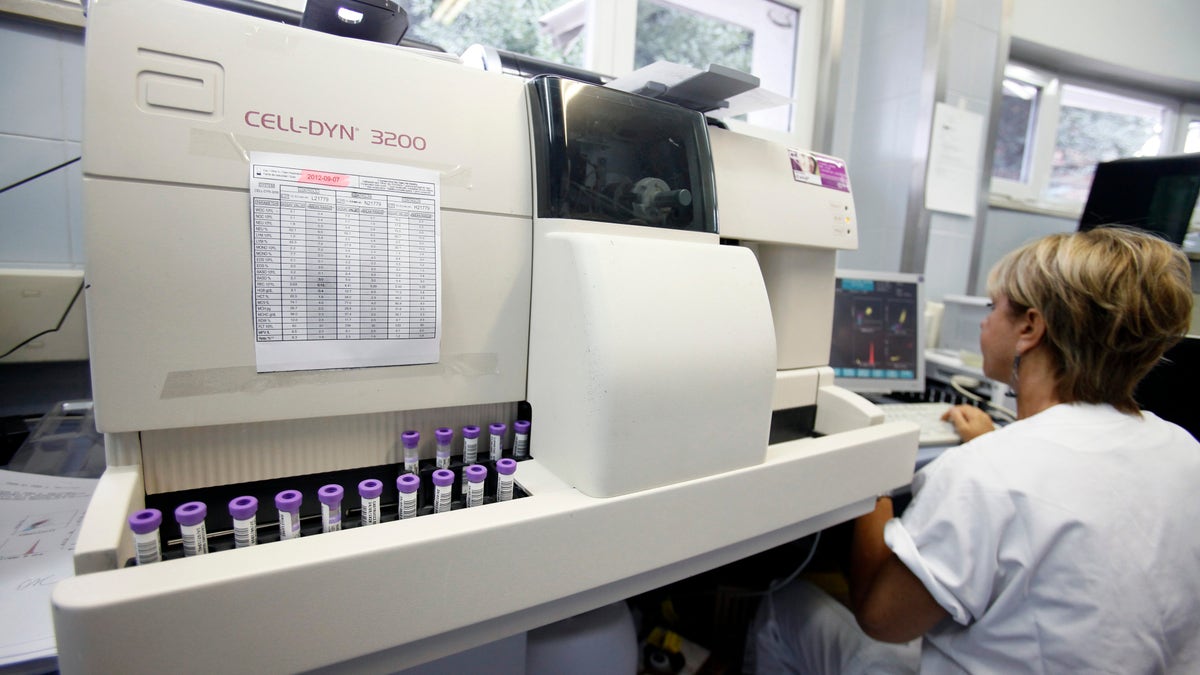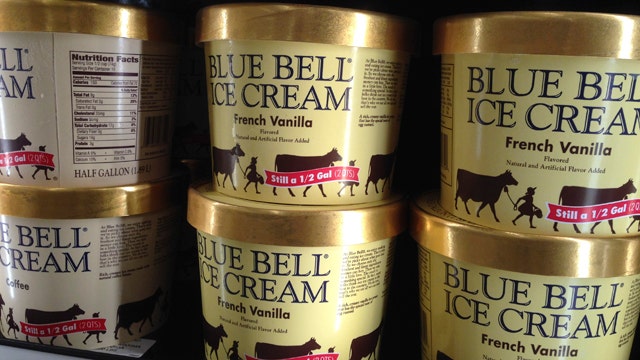Blue Bell creameries announces massive product recall
Blue Bell recalls ice cream after testing positive for deadly bacteria
The recent baby formula recall by Abbott Nutrition understandably has parents concerned about the health of their babies. One pediatrician told Fox News he has expanded his emergency room hospital examination screenings to include asking parents of sick infants, what type of formula does the baby use?
Dr. Matthew Harris, a pediatric emergency medicine physician at Northwell Health in New Hyde Park N.Y., told Fox News that there are certain symptoms to look for in infants who may have become sick after consuming the recalled lot of reportedly contaminated powdered baby formula.
"Parents should be on the lookout for fever, vomiting, shortness of breath, or yellowing of the eyes or skin if their children are drinking these formulas, but once again we should caution parents that these are rare and Abbott has taken appropriate steps in minimizing the risk," Harris told Fox News.
As Fox News reported, Abbott Nutrition expanded its voluntary baby formula recall this week to include one lot of Similac PM 60/40 formula, after learning that an infant died who had "consumed Similac PM 60/40 from this lot" but that the cause of the infection "has not been determined."
ABBOTT NUTRITION'S BABY FORMULA RECALL WIDENS AFTER ANOTHER INFANT DIES
Harris told Fox News, this formula is specifically for children who are at high risk for nutrition, who have difficulty absorbing nutrients and is commonly used in premature children.
The Similac PM 60/40 lot was manufactured in a Sturgis, Michigan facility, the same facility where three other powdered infant formulas: Similac, Alimentum and EleCare that were recalled last month, were produced, the Food and Drug Administration said in a report on their website. The formulas were recalled after the agency received reports of infants getting sick after consuming the formula, the FDA said.
According to the FDA, so far there have been four reports of Cronobacter sakazakii infections in infants and one case of Salmonella Newport. The health agency said on its website, the illnesses resulted in hospitalization and "Cronobacter may have contributed to death in two patients."

Abbott Divisional Vice President of Nutrition Global Research and Development Dr. Hakim Bouzamondo speaks during a keynote address by Abbott Chairman of the Board and CEO Robert B. Ford at CES 2022 at The Venetian Las Vegas on January 6, 2022 in Las Vegas, Nevada. (Photo by Ethan Miller/Getty Images)
Cronobacter sakazakiim is a particularly nasty gram-negative infection which is a type of severe bacterial infection," Harris told Fox News in an interview and added, "There have been also cases of salmonella which is a more common bacterial infection that typically causes a diarrheal illness sometimes with fever in all sorts of children and infants."
Health experts said in some cases, cronobacter bacteria could cause life-threatening infections such as sepsis or meningitis. Harris said in the interview, if you think your child is sick, seek medical help and discuss any concerns with your pediatrician.
PRODUCT RECALLS PUBLISHED BABY TEETHERS SOLD AT TARGET, OTHER STORES RECALLED DUE TO CHOKING HAZARD
Harris, who is also a father of an infant, told Fox News it was very difficult in the previous months to obtain regular formula due to global shipping issues and that this recent recall, while appropriate, can be quite crippling to parents of newborns, especially those of deprived socioeconomic need.

A biologist uses a Cell-Dyn 3200 analyzer, manufactured by Abbott Laboratories, to test blood samples in the medical laboratory of the Casa di Cura San Feliciano hospital in Rome, Italy, on Monday, July 23, 2012. (Photographer: Alessia Pierdomenico/Bloomberg via Getty Images)
Abbott initiated the first voluntary recall on Feb. 17. The company said it tests for pathogens in its manufacturing facilities routinely and "found evidence of Cronobacter sakazakii in the plant in non-product contact areas" at the Michigan facility.
CLICK HERE TO GET THE FOX NEWS APP
Abbott said on its website, its distributed product has not tested positive for the presence of Cronobacter sakazakii and that product samples of the recalled Similac PM 60/40 lot also recently tested negative for the bacteria. The company also stated on the site that it did not find evidence of salmonella Newport however the investigation is ongoing.
"Our top priority is the health and safety of the infants and children who depend on us. We value the trust parents place in us for high quality and safe nutrition and we’ll do whatever it takes to keep that trust," Abbott said in a statement.
"The cases are under investigation and at this time the cause of the infants’ infections have not been determined. All infant formula products are tested for Cronobacter sakazakii, Salmonella and other pathogens and they must test negative before any product is released. The company keeps retained samples of each batch. We tested retained product samples related to the complaints for Cronobacter sakazakii and Salmonella, and they tested negative."
To find out if you have a recalled formula lot click here.
